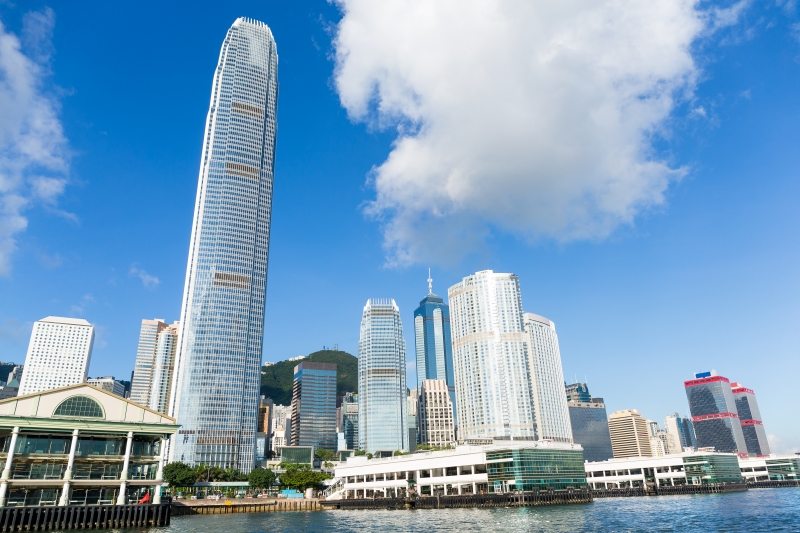

Hong Kong is a great business location that can give your business a foothold in the Asian Market. It is a prime location for setting up your business as an international company. Offshore companies are companies that does their businesses solely outside the country. Interestingly, offshore companies in Hong Kong may qualify for a tax exemption known as Offshore Income Hong Kong Tax.
What Is Offshore Tax?
If you conduct business in Hong Kong or are familiar with the landscape, you may know what offshore tax is. Offshore tax refers to an exemption of tax payment by offshore companies, and Hong Kong only charges taxes on businesses that have customers within the country. Therefore, any business that doesn’t have locally based clients in Hong Kong is classified as an offshore company.
With the offshore tax exemption in Hong Kong, many businesses consider Hong Kong a tax shelter. Tax shelters allow businesses to hide money from tax authorities in various countries. Since the company would be filed as an offshore company, it will not be required to pay tax in Hong Kong. Offshore tax doesn’t mean that there are no taxes paid in Hong Kong but simply limits who pay the taxes.
Offshore tax in Hong Kong refers to a tax-free status on all profits generated solely outside the country.
Who Is Qualified For An Offshore Claim?
With many businesses seeking to use the offshore tax claim to their benefit, some legalities will need to be met. The most important thing you will need to know is whether or not your company qualifies for an offshore claim. Companies that qualify are those that will be exempt from tax payment. Some of the criteria that must be met for your company to be eligible for an offshore claim include:
- 100% clientele outside Hong Kong as well as all profits from outside the country
- Having no Hong Kong-based website
- No offices or staff based in Hong Kong
- Offering no services, sales or business of any kind in Hong Kong
- Owning no Hong Kong-based warehouses or fulfillments
If you should meet all the criteria set, you will still need to consult with the appropriate authorities to ensure you are qualified for an offshore claim. PremiaTNC offers consultation services relating to offshore claims in Hong Kong.
When Is The Ideal Registration Window For An Offshore Claim?
Once your company qualifies for an offshore claim, you must register for one. The registration will make it official and exempt you from taxes. The process can take a while, as there will be a need to verify that your company qualifies for an offshore claim. To help beat the legalities and ensure your business or your finances are not affected while waiting for an offshore claim, you need to register at the right time.
The time to register for an offshore claim is when your first profit tax return is due, usually 18 months after registering the company. Once you can register for an offshore tax, your finances won’t be affected too much by the verification process.
Can You Get An Offshore Claim Easily?
Getting an offshore claim is easy, especially when you time it appropriately. With a profit tax return (PTR) necessary, it is ideal for applying for an offshore claim and your first profit tax return. The first PTR filing is 18 months after the company is registered, but subsequent fillings are yearly after the first. You will need to have all the required documents when applying for an offshore claim. Some of the documents you will need when applying for an offshore claim include:
- Bank Statements
- Expense receipts
- Contracts and invoices
Some other documents are not mandatory but can prove helpful for an offshore claim. Some of these documents include:
- Shipping documents
- Trading proofs, e.g. Purchase orders
- Travel documents logging time with clients and suppliers
- Communication records proving negotiation with clients and suppliers.
Once you provide all the required documents, the offshore claim verification process will commence. The process isn’t quick and can last for several months before a verdict is reached.
Uncovering the FSIE Regime and Offshore Income in Hong Kong
Understanding FSIE
Under Hong Kong’s territorial tax framework, the treatment of offshore income has been significantly impacted by the introduction of the Foreign-Sourced Income Exemption (FSIE) regime, which aligns the city with global tax standards. Traditionally, profits tax in Hong Kong has not been applicable to income that was generated from activities conducted outside of its territorial boundaries. However, with the implementation of the FSIE rules, certain types of offshore income, such as interest, dividends, capital gains from equity disposals, and royalties, may now be subject to tax unless specific exemption criteria are met.
Offshore Income and Substance Requirements
To benefit from the FSIE exemption, companies must now demonstrate that their offshore income was generated through substantive economic activities conducted outside Hong Kong. This means that strategic decisions, daily operations, and business control functions must take place abroad. For instance, if the income is derived from dividends or interest, the company may need to prove that it manages investments or treasury functions outside of Hong Kong.
The Inland Revenue Department (IRD) assesses these claims by examining whether the company has an adequate number of qualified employees and operating expenditures overseas. In addition, entities must maintain proper documentation, including contracts, financial statements, meeting records, and email correspondence, that clearly shows the income-generating activities occurred offshore.
Documentation and Audit Preparedness
Robust documentation is a key requirement under the FSIE regime. The IRD may request proof of the business’s physical presence, decision-making activities, and income flow. Entities that cannot produce these records may risk having their offshore claim denied and their income taxed under local profits tax rules. Understanding and complying with the FSIE regime is essential for any business looking to structure operations in a way that legitimately qualifies for offshore income treatment in Hong Kong.
Frequently Encountered Errors Related to Claiming Offshore Income in Hong Kong
Misplaced Operations Within Hong Kong
One of the most common errors in claiming offshore income tax exemption is conducting business operations within Hong Kong while trying to present the income as foreign-sourced. The IRD looks at where contracts are signed, where decisions are made, and where employees are based. If any of these key activities take place in Hong Kong, the department may determine that the income has a Hong Kong source, making it taxable.
Weak or Incomplete Recordkeeping
Another cause for concern for the IRD is the lack of sufficient documentation. Offshore claims must be supported by a consistent and comprehensive audit trail. This includes signed agreements, payment records, shipping logs, email communications, and bank statements. The likelihood of a claim being rejected increases significantly when documentation is missing or incomplete.
Overlooking the Importance of Separate Activities
It is a common misconception that simply registering a company in Hong Kong and conducting transactions abroad is enough to qualify for an offshore income exemption. Each income stream must be assessed separately, and businesses must prove that the related activities were also conducted entirely outside of Hong Kong. If the line between onshore and offshore activities is blurred, the IRD is more likely to challenge the claim.
Navigating Compliance Effectively
To reduce the risk of tax audits or penalties, companies must stay informed of evolving tax rules and prepare detailed, accurate documentation for every offshore income claim. To ensure the IRD can clearly identify the foreign-sourced nature of the income and validate the legitimacy of the exemption request, it is important to remain transparent and well-organized.
Conclusion
Hong Kong is one of the most sought-after business locations in the world. Thanks to its favourable business policies and Offshore Income Tax, businesses love Hong Kong. Companies that qualify for the offshore tax claim tend to use Hong Kong to store their funds. Moreover, with its favorable income tax policies, wealthy entrepreneurs and corporate workers also seem attracted to Hong Kong.
FAQs
Q: How Long Does An Offshore Claim Registration Take?
Registering for and being issued an offshore claim isn’t a fixed process and can take several months. It is important to note that the duration of the claim is usually dependent on your company's structure. The larger the company or more complicated the structure, the longer the claim will take. The investigation needs to be thorough before your offshore claim is granted or rejected.
Q: Is Hong Kong Tax Free?
Hong Kong isn't tax-free, but it is still a hot zone for businesses. The main reason businesses are in abundance in Hong Kong is that the taxes are considerably low in Hong Kong. The taxes in Hong Kong only applies to the business that operates in and generates profit in the country.
Q: How Much is the Tax in Hong Kong?
The fixed tax rate for companies in Hong Kong is 16.5%. The rate is standard, but companies can use specific incentives and programs to help lower their taxes. Under special conditions, a company may only be required to pay half the tax due.
Q: Do you pay tax on Foreign Income?
No, Hong Kong does not levy a tax on income generated outside the country. The major criteria for an income to be taxed is that it must be generated entirely in the country. Any income generated outside the country is tax-free, making Hong Kong a paradise for foreign businesses.















